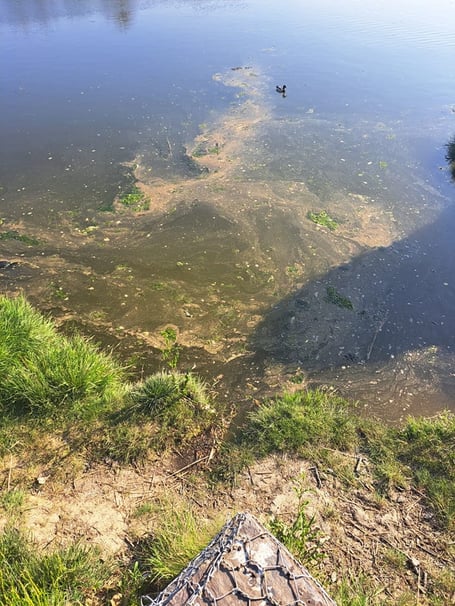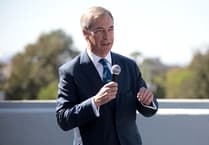MSs have grilled representatives from Dŵr Cymru Welsh Water, Natural Resources Wales and Ofwat amid public outcry about illegal sewage spills.
The Senedd’s climate change committee took evidence after reports that spills in Wales account for about 25 per cent of all discharges across Wales and England.
Six of the UK’s 20 most polluted rivers are in Wales.
Peter Perry, chief executive, said Dŵr Cymru Welsh Water has 3,500 permits and the company has flagged less than 200 to Natural Resources Wales (NRW).
“It’s inevitable with an imperfect infrastructure that you’re going to find things,” he said. “But we have always been totally open and transparent.
“When we find those problems, we flag them – we then work with NRW to prioritise fixing them…. This has never been treated in an underhand way.”
He added that nobody “gets out of bed in the morning looking to cause pollution”.
Illegal
Pressed by Llyr Gruffydd, the committee’s chair, Mr Perry acknowledged illegal spills.
Mr Gruffydd highlighted an assessment which revealed a rise in pollution and a fall in self-reporting – “a very different trajectory to the one that you’ve portrayed to us today”.
Mr Perry said Dŵr Cymru was disappointed to drop from a four-star rating to two, telling MSs that there were three serious pollution incidents in 2021 and five in 2022.
“This is not what I would call a massive increase,” he said, recognising that it’s five too many.
Steve Wilson, managing director of waste water services, said blockage of the sewer network is the biggest cause of pollution in Wales.
Mike Davis, chief financial officer, said it requires a wider societal effort to prevent wet wipes and cotton buds being flushed down toilets.
NRW
Gareth O’Shea, executive director of operations, said NRW shares the public’s concern.
Labour’s Huw Irranca-Davies asked: “Who holds the feet of Dŵr Cymru to the fire?”
Mr O’Shea said NRW is responsible in terms of environmental regulation and he disputed suggestions that the body takes a hands-off approach to enforcement.
“We don’t agree with the water company that numbers are getting lower,,” he said. “Our ambition for them is clear – we want zero serious pollution incidents.”
He said: “We are not happy with a two-star performing company.”
Mark Squire, principal adviser, strategic projects, stressed that NRW will use enforcement powers “as and when we need to”.
Janet Finch-Saunders, the Tory MS for Aberconwy, raised concerns about Dŵr Cymru breaching permit conditions more than 200 times in six years but only being fined twice.
Mr Gruffydd said there is a carrot-and-stick approach “but you never use the stick”.
Mr O’Shea disputed this, saying there is a lag between incidents and enforcement. He told MSs there have been six prosecutions and 19 formal cautions.
Labour backbencher Jenny Rathbone said: “I think the public is getting the impression that the citizen scientists are doing a better job than you are.”
Ofwat
David Black, chief executive, said Dŵr Cymru has major issues to address in terms of waste water investment and Ofwat is concerned about the company’s performance.
“Our recent water company performance report did find it was a lagging company,” he said.
He told the committee that Ofwat will be scrutinising Dŵr Cymru’s 2025-2030 business plan, particularly how the company is addressing affordability and supply chain constraints.
Mr Black explained that Dŵr Cymru has met only five of its 12 key performance targets, saying: “That is a cause for concern.”
He told the meeting on Thursday, 9 November: “We are looking at every regulatory instrument at our disposal….
“We will leave no stone unturned to try to drive better performance in Wales.”
Jenny Rathbone asked about the justification for Dŵr Cymru’s chief exec being paid around six times more than the first minister of Wales.
Mr Black pointed to proposals announced this week to clamp down on bonuses.
He said: “From next year, when we see companies that fail to sufficiently demonstrate that the pay for their executive team is linked to performance – we will intervene.”





Comments
This article has no comments yet. Be the first to leave a comment.